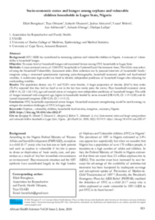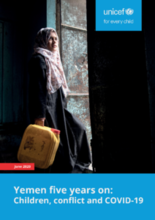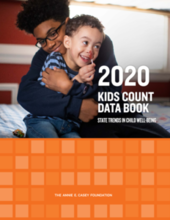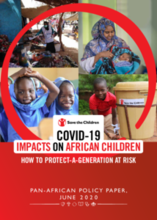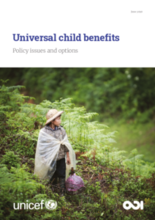Displaying 111 - 120 of 505
The purpose of this study from the journal of African Health Sciences was to assess the level of household hunger and associated factors among orphans and vulnerable children (OVC) households in Lagos State, Nigeria.
The authors of this article sought to better understand the relationship between homelessness and child welfare services (CWS) involvement and examine whether homeless shelter data could combine with CWS data to enhance intervention targeting.
This study sought to better understand the relationship between homelessness and child welfare services (CWS) involvement and examine whether homeless shelter data could combine with CWS data to enhance intervention targeting.
This paper explores within group differences for Mexican and Puerto Rican mothers vulnerable to child welfare involvement.
This article examines rates of disparity using secondary longitudinal clinical-administrative data provided by a child protection agency in Quebec for a subsample of Black, White, and other visible minority children over a ten-year span.
This report from UNICEF explores the situation of children during the humanitarian crisis in Yemen, including the impacts of the COVID-19 pandemic. It outlines UNICEF's response to the crisis and presents a global call to action.
The 31st edition of the Annie E. Casey Foundation's KIDS COUNT® Data Book describes how children across the United States were faring before the coronavirus pandemic began. As always, policymakers, researchers and advocates can continue using this information to help shape their work and build a stronger future for children, families and communities.
This paper explores the efficacy of the United Nations Convention on the Rights of the Child (Convention, UN General Assembly, 1989) through the lens of the over-representation of First Nations children placed in out-of-home care in Canada and Aboriginal and Torres Strait Islander children in Australia.
This policy paper by Save the Children outlines some of the main threats the COVID-19 pandemic poses to children in Africa and suggests some of the political and programmatic responses to protect children’s rights.
This report from ODI and UNICEF critically reviews the case for universal child benefits (UCBs). It seeks to contribute to a burgeoning and lively debate on the (potential) role of UCBs as a policy instrument in the pursuit of child poverty reduction and universal social protection.

